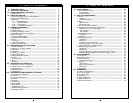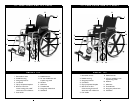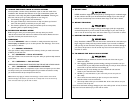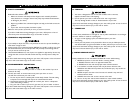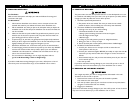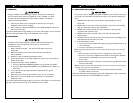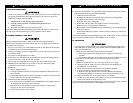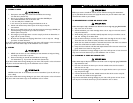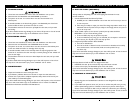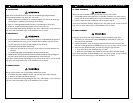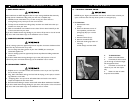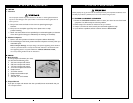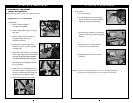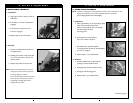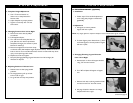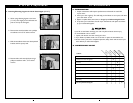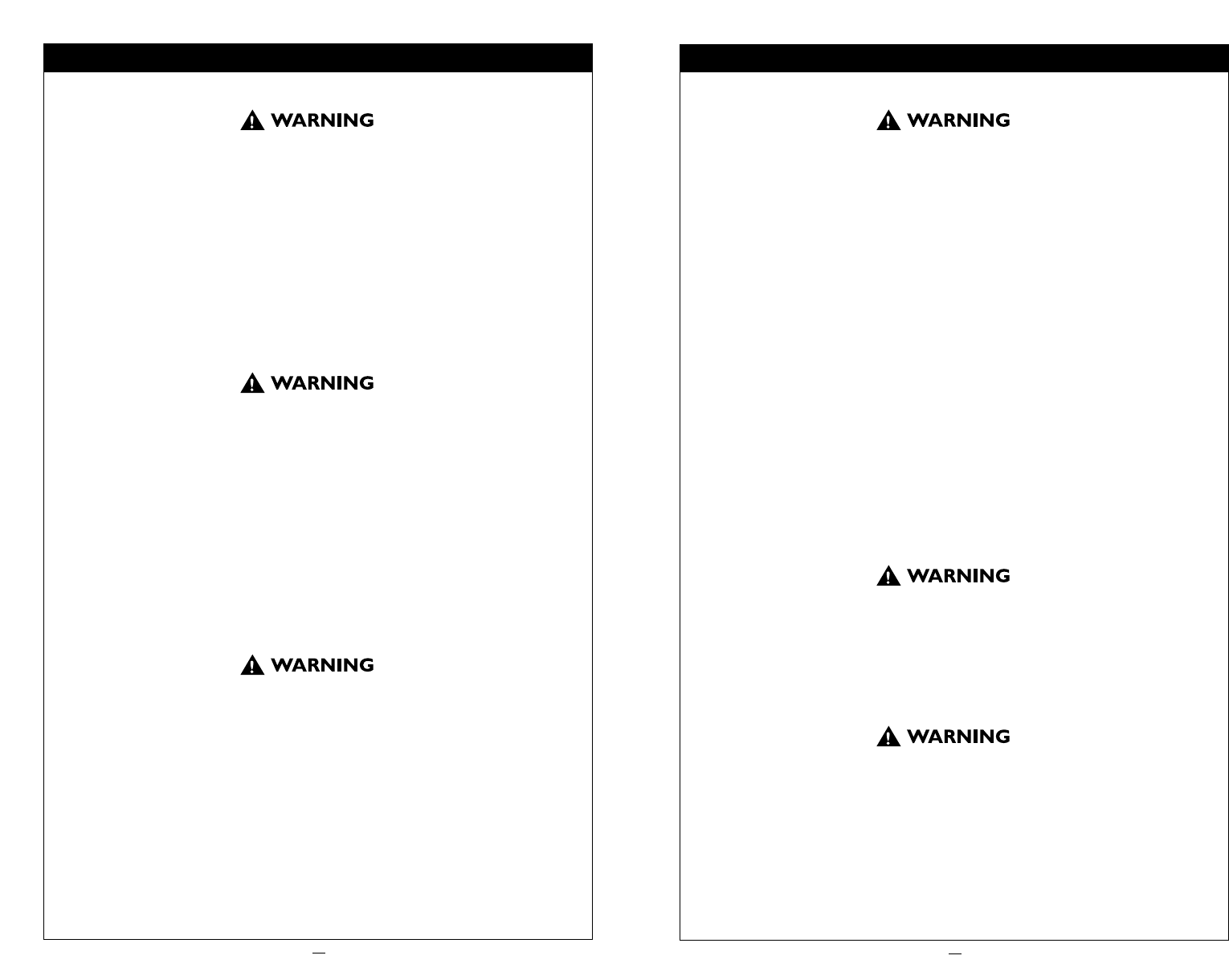
21
VIII. WARNINGS: COMPONENTS & OPTIONS
▲
!
A. ANTI-TIP TUBES (OPTIONAL)
Anti-tip tubes can help keep your chair from tipping over backward in most
normal conditions.
1. Sunrise Recommends Use Of Anti-Tip Tubes:
a. UNLESS you are a skilled wheelchair user of this chair and are sure you are not
at risk to tip over.
b. Each time you modify or adjust your chair.The change may make it easier to tip
backward. Use anti-tip tubes until you adapt to the change, and are sure you are
not at risk to tip over.
2. When locked in place (in the “correct” position) anti-tip tubes should be
BETWEEN 1 1/2 to 2 inches off the ground.
a. If set too HIGH, they may not prevent a tip-over.
b. If set too LOW, they may “hang up” on obstacles you can expect in normal use.
If this occurs, you may fall or your chair may tip over.
3. Keep Anti-Tip Tubes Locked In Place UNLESS:
a. You have an attendant; or
b. You have to climb or descend a curb, or overcome an obstacle, and can safely
do so without them. At these times, make sure anti-tip tubes are up,
out of the way.
If you fail to heed these warnings damage to your chair, a fall, tip-over or loss of control
may occur and cause severe injury to the wheelchair user or others.
B. ARMRESTS
Armrests detach and will not bear the weight of this chair.
1. NEVER lift this chair by its armrests.They may come loose or break.
2. Lift this chair only by non-detachable parts of the main frame.
If you fail to heed these warnings damage to your chair, a fall, tip-over or loss of control
may occur and cause severe injury to the wheelchair user or others.
C. CUSHIONS & SLING SEATS
1. Breezy sling seats and standard foam cushions are not designed for the relief
of pressure.
2. If you suffer from pressure sores, or if you are at risk that they will occur, you may
need a special seating system or a device to control your posture. Consult your
doctor, nurse or therapist to find out if you need such a device for your well-being.
If you fail to heed these warnings damage to your chair, a fall, tip-over or loss of control
may occur and cause severe injury to the wheelchair user or others.
20
VII. WARNINGS: FOR SAFE USE
▲
!
C. CLIMBING STAIRS
1. Use at least two attendants to move a chair and wheelchair user up stairs.
2. Move the chair and wheelchair user BACKWARD up the stairs.
3. The person at the rear is in control. He or she tilts the chair back to its
balance point.
4. A second attendant at the front firmly grasps a non-detachable part of the front
frame and lifts the chair up and over one stair at a time.
5. The attendants move to the next stair up. Repeat for each stair, until you reach
the landing.
If you fail to heed these warnings damage to your chair, a fall, tip-over or loss of control
may occur and cause severe injury to the wheelchair user or others.
D. DESCENDING STAIRS
1. Use at least two attendants to move a chair and wheelchair user down stairs.
2. Move the chair and wheelchair user FORWARD down the stairs.
3. The person at the rear is in control. He or she tilts the chair to the balance point
of the rear wheels and rolls it to the edge of the top step.
4. A second attendant stands on the third step from the top and grasps the chair
frame. He or she lowers the chair one step at a time by letting the rear wheels roll
over the stair edge.
5. The attendants move to the next stair down. Repeat for each stair, until you reach
the landing.
If you fail to heed these warnings damage to your chair, a fall, tip-over or loss of con-
trol may occur and cause severe injury to the wheelchair user or others.
E. MAINTENANCE
1. Inspect and maintain this chair strictly per chart.
2. If you detect a problem, make sure to service or repair the chair before use.
3. At least once a year, have a complete inspection, safety check and service of your
chair made by an authorized supplier.
If you fail to heed these warnings damage to your chair, a fall, tip-over or loss of control
may occur and cause severe injury to the wheelchair user or others. For additional
maintenance information see Section XII: Maintenance.



